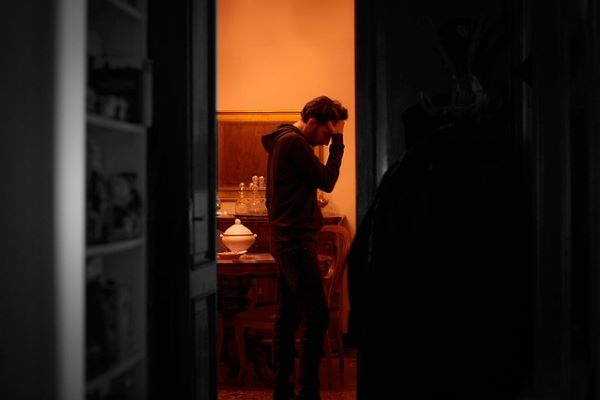We’ve all been there—heart racing, palms sweating, mind spinning. Anxiety can sneak in when you least expect it or linger in the background, making everyday life feel like a struggle. If you’ve been searching for a more natural way to manage anxiety, you might wonder: Can homeopathy help?
Let’s dive into the world of homeopathy for anxiety, exploring remedies, scientific insights, and how it fits into a holistic approach to mental health.
Also, read: Homeopathic Remedies for Depression: Can They Work?
What Is Anxiety?
Anxiety is more than just occasional stress. It’s a persistent feeling of unease or dread, often accompanied by physical symptoms like a racing heart, shortness of breath, or even nausea. Here are some common types of anxiety:
- Generalized Anxiety Disorder (GAD): Chronic worry about everyday events.
- Social Anxiety: Fear of social situations or judgment.
- Panic Disorder: Sudden, intense episodes of fear (panic attacks).
- Phobias: Irrational fears of specific things, like spiders or heights.
Anxiety affects millions of people, and while conventional treatments like therapy and medication are effective, many seek natural alternatives like homeopathy. (Source)
How Does Homeopathy Work for Anxiety?
Homeopathy focuses on treating the individual as a whole—mind, body, and emotions. The principle is simple yet intriguing: “Like cures like.” This means a substance that causes symptoms in a healthy person can, when highly diluted, help alleviate those same symptoms in someone unwell.
For anxiety, a homeopath considers not just the anxiety itself but also your unique experiences, physical symptoms, and emotional state. The goal is to find a remedy that matches your specific “picture.”
Common Homeopathic Remedies for Anxiety
1. Aconitum Napellus
- Best For: Sudden panic or fear.
- Symptoms: If your anxiety hits like a bolt of lightning—fast and overwhelming—this remedy might help. Imagine being on edge after a scare or sudden trauma.
2. Argentum Nitricum
- Best For: Anticipatory anxiety.
- Symptoms: Do you get nervous before an event or overthink worst-case scenarios? You might also experience digestive issues, like diarrhea, with your anxiety.
3. Gelsemium
- Best For: Performance anxiety.
- Symptoms: Think trembling hands, weakness, and a heavy feeling before a big speech or exam.
4. Arsenicum Album
- Best For: Anxiety about health or security.
- Symptoms: If you’re a perfectionist, prone to worrying about illness, finances, or safety, this remedy may suit you.
5. Kali Phosphoricum
- Best For: Stress-induced anxiety.
- Symptoms: Anxiety that leaves you mentally and physically exhausted might respond well to this remedy. (Source)
Does Homeopathy Work for Anxiety?
Let’s address the elephant in the room. While homeopathy has passionate supporters, it’s often debated in scientific circles. Critics argue that the remedies are too diluted to have any physiological effect, attributing benefits to the placebo effect.
The Research
- A 2019 review in Complementary Therapies in Clinical Practice suggested homeopathy could help reduce anxiety symptoms, especially when individualized remedies are used.
- Personalized care: Many people find the consultation process itself therapeutic, as homeopaths often spend an hour or more discussing your symptoms, fears, and overall health.
Is the science rock-solid? Not exactly. But anecdotal evidence abounds, with many reporting improved well-being after starting homeopathic treatments.
The Holistic Approach: Beyond Remedies
Homeopathy doesn’t work in isolation. For best results, combine it with lifestyle changes. Here are some ideas:
1. Mindfulness and Meditation
Ever tried simply sitting with your breath? It’s harder than it sounds but can work wonders for calming an anxious mind.
2. Exercise
Anxiety has a tough time coexisting with endorphins. Whether it’s yoga, running, or dancing around your living room, movement helps.
3. Balanced Diet
Foods rich in magnesium (like dark chocolate and spinach) or omega-3s (hello, salmon!) can support brain health.
4. Therapy
Homeopathy complements, not replaces, counseling or therapy. Cognitive Behavioral Therapy (CBT) remains one of the most effective treatments for anxiety.
FAQs About Homeopathy for Anxiety
1. Can homeopathy cure anxiety?
Not exactly. Homeopathy helps manage symptoms and improve overall well-being but shouldn’t be seen as a standalone cure.
2. Is homeopathy safe?
Yes, when used under professional guidance. The remedies are highly diluted and generally free of side effects.
3. How long does it take to work?
Some people notice changes in a few weeks, but long-term benefits often require patience and consistent treatment.
4. Can I use homeopathy alongside medication?
Usually, yes. Always consult your doctor and homeopath to ensure compatibility.
5. Do I need a prescription for homeopathic remedies?
In most countries, remedies are available over the counter, but a consultation ensures you get the right match for your symptoms.
What’s It Like to Try Homeopathy?
Let’s picture this: you’ve been feeling anxious about, well, everything. Work deadlines, your health, the state of the world—it’s all piling up. You visit a homeopath, and instead of a rushed five-minute appointment, they spend an hour asking about you. Not just your anxiety but your sleep, diet, relationships, and even childhood.
They prescribe a remedy tailored to your unique experiences. A few weeks later, you notice subtle changes: the racing thoughts are quieter, and you feel a little less on edge. It’s not a miracle cure, but it’s a step in the right direction.
The Bottom Line
Managing anxiety isn’t easy, and there’s no one-size-fits-all solution. Homeopathy offers a gentle, personalized approach that might just be the extra support you need. While the scientific evidence isn’t conclusive, many find comfort and relief through these remedies.
If you’re curious, why not give it a try? Consult a qualified homeopath, explore your options, and see how it feels. After all, anxiety doesn’t define you—and every step toward calm is worth celebrating.
What about you? Have you tried homeopathy for anxiety? Share your thoughts or questions in the comments below!





